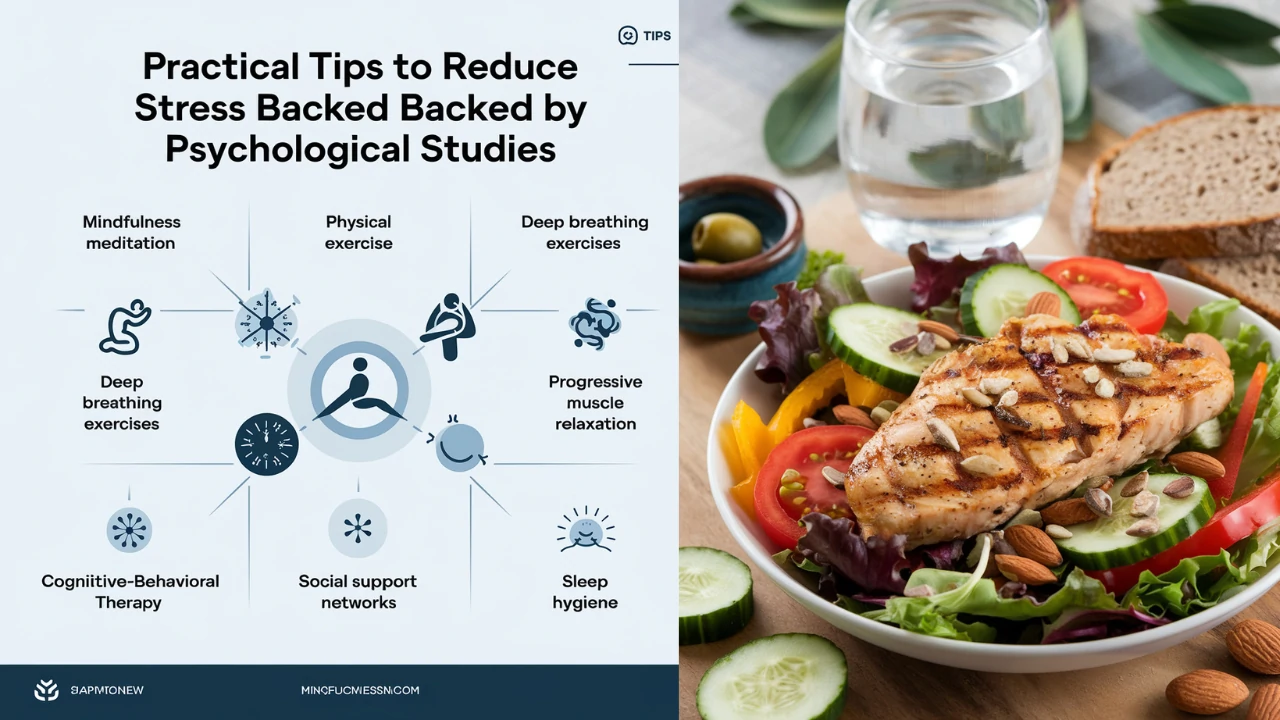Tips to Reduce Stress – Proven strategies to help you manage stress and enhance mental clarity.
Stress has become a constant companion for many in today’s fast-paced world. While a certain level of stress is normal, chronic stress can have far-reaching consequences on both mental and physical health. Backed by insights from psychological research, there are evidence-based strategies to effectively manage stress and improve overall well-being.

Understanding Stress: Why It Happens
Stress is the body’s response to a perceived challenge or threat. According to the American Psychological Association (APA), prolonged stress can affect cognitive functions, immunity, and emotional stability. Understanding the root causes—whether work pressures, relationships, or health concerns—can help you take proactive steps toward stress management.
Practice Mindfulness Meditation
Mindfulness, as popularized by studies from Harvard University, has shown to reduce cortisol levels—the primary stress hormone. Regular meditation, even for 10 minutes a day, can help you focus on the present moment and reduce feelings of anxiety. Apps like Headspace or Calm can guide beginners in adopting this practice.
Exercise Regularly
The connection between physical activity and mental health is well-documented. A study from Princeton University highlights how aerobic exercises like jogging or cycling release endorphins, which improve mood and reduce stress. If structured workouts feel overwhelming, a brisk walk outdoors can offer similar benefits.
Optimize Your Morning Routine
A chaotic morning can set the tone for the entire day. Simplifying and structuring your morning with intentional habits can reduce stress levels. Consider starting your day with a calming tea, light stretches, or even a supplement designed to boost energy and metabolism. For example, Java Burn, a natural coffee additive, helps enhance focus while supporting overall health. By incorporating such routines, you can approach the day with clarity and calm.
The Power of Social Connections
Strong social networks act as a buffer against stress. Research from the University of Chicago demonstrates that maintaining close relationships and engaging in meaningful conversations can lower stress markers. Make time for friends or family, or consider joining community groups to foster deeper connections.
Prioritize Sleep Hygiene
Quality sleep is crucial for managing stress effectively. Studies from Stanford University emphasize maintaining a consistent sleep schedule, minimizing screen time before bed, and creating a restful environment. Deep, restorative sleep helps regulate stress hormones and improves cognitive resilience.

Final Thoughts
While stress is unavoidable, managing it effectively can transform how you experience daily challenges. By implementing small, science-backed changes—such as mindfulness, exercise, and improved nutrition—you can significantly enhance your quality of life. Take that first step today, and remember that every effort you make towards a healthier lifestyle pays dividends in your overall well-being.
Your journey to a stress-free life starts now! What will your first change be?
See this interesting article about: How to Build a Healthy Morning Routine


Pingback: Practical Tips to Reduce Stress Backed by Psychological Studies – stay healthy today
Pingback: The Power of Yoga: How It Transforms Your Mind and Body – stay healthy today
Pingback: Parkinson’s Disease: Impact on Movement and Quality of Life - stay healthy today